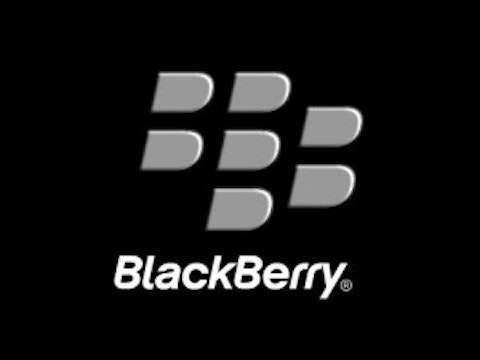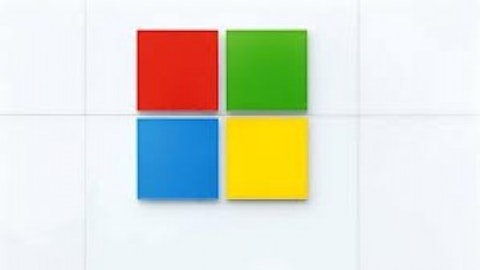
A rough launch
Research In Motion Ltd (NASDAQ:BBRY)s future in the mobile handset market pretty much rests on BlackBerry 10. The phone has some nice features, including the ability to separate work from pleasure and Research In Motion Ltd (NASDAQ:BBRY)s always high-quality security. However, the phone was exceptionally late to the smartphone party. That put it at a distinct disadvantage compared to industry leaders Apple Inc. (NASDAQ:AAPL) and Samsung.
Unfortunately for BlackBerry, the launch of the phone added to the challenge. The key smartphone market is the United States, but the company chose to launch the phone in foreign markets before bringing it out in the States. That likely killed any momentum that might have built up domestically.
The other problem that BlackBerry faces is that its business model is similar to Apple Inc. (NASDAQ:AAPL)’s in that it is trying to control every aspect of its phone from design to OS. Only BlackBerry doesn’t have the installed base of Apple Inc. (NASDAQ:AAPL) or the cache, so what was once a big positive for the company when it was the technology leader is now a big negative.
In two years, the company’s top line has fallen from nearly $20 billion to $11 billion. It lost almost $1.25 a share last year. The weak sales results of the new phone in the first quarter led to a steep share decline and another quarterly loss. It looks like BlackBerry will be lucky to hold onto its keyboard-enabled phone niche if it survives in the handset space at all. Investors should avoid the shares.
Burning the candle at both ends
Nokia, meanwhile, has been focusing intently on its Lumia smartphone. The launch went reasonably well and the phone received solid marks. While sales have been weaker than hoped, the big problem has been increasing competition from cheap Asian handsets in the emerging markets.
The company’s core strength in recent years has been a dominant position in fast growing emerging economies. As the smartphone segment has matured in developed markets, however, Asian handset makers have been pushing into those markets and taking market share from Nokia Corporation (ADR) (NYSE:NOK). It looks increasingly like management took its eye off the ball by focusing too much on the Lumia.
Nokia’s top line has been falling since 2007, it has lost money in each of the last two years, and it was forced to eliminate its dividend to help shore up its finances. Although the Lumia is a nice phone, it is increasingly looking like an also-ran product from an also-ran company. Investors should avoid Nokia, too.
From Google’s playbook
Microsoft Corporation (NASDAQ:MSFT)’s Windows Mobile OS is the heart of the Lumia. While that phone is a make or break product for Nokia Corporation (ADR) (NYSE:NOK), it’s basically a way for Microsoft to show off its updated mobile OS. It reportedly cost Microsoft around $1 billion for the privilege in development payments. That said, now that the Lumia is on sale, Nokia is paying more in royalties than Microsoft Corporation (NASDAQ:MSFT) is paying Nokia.
Microsoft’s mobile OS has gotten good marks. That’s allowed Microsoft Corporation (NASDAQ:MSFT) to enter into discussions with other handset makers in a much better position than it would have been in without the Nokia Corporation (ADR) (NYSE:NOK) phone. Thus, the Nokia deal has been money well spent, particularly as Google Inc (NASDAQ:GOOG) has started to shift from partner to competitor with many of its Android customers.
As Android users start to consider life beyond Google Inc (NASDAQ:GOOG), Microsoft increasingly looks like a good option. Research In Motion Ltd (NASDAQ:BBRY)s closed model doesn’t allow for sharing and Nokia Corporation (ADR) (NYSE:NOK) no longer has its own OS. While Microsoft Corporation (NASDAQ:MSFT) may never be the market share leader, it has a good chance to be a solid number three player by offering its OS to anyone who’s willing to use it. Interestingly, that’s aping a page from Google Inc (NASDAQ:GOOG)’s mobile playbook.
The winner?
It’s too soon to call a winner in the race for the bronze. That said, it looks like Microsoft is the best positioned to finish in third place. And there’s plenty more to like at the diversified technology giant.
The company’s top line has grown in nine out of the past 10 years. Earnings have been more erratic, but the company has earned more than $2 a share in each of the last three years. Its dividend, meanwhile, has been increased annually for a decade.
With a yield of around 2.7% and a price to earnings ratio in the upper teens, Microsoft Corporation (NASDAQ:MSFT) is a good option for growth and income investors. That’s bolstered by a massive business and the company’s increasingly good prospects in mobile. The dividend yield, meanwhile, provides a floor for the shares, limiting downside risk.
The article Of This Trio, Only One Is Going to Win the Mobile Bronze originally appeared on Fool.com.
Reuben Brewer has no position in any stocks mentioned. The Motley Fool owns shares of Microsoft Corporation (NASDAQ:MSFT). Reuben is a member of The Motley Fool Blog Network — entries represent the personal opinion of the blogger and are not formally edited.
Copyright © 1995 – 2013 The Motley Fool, LLC. All rights reserved. The Motley Fool has a disclosure policy.





